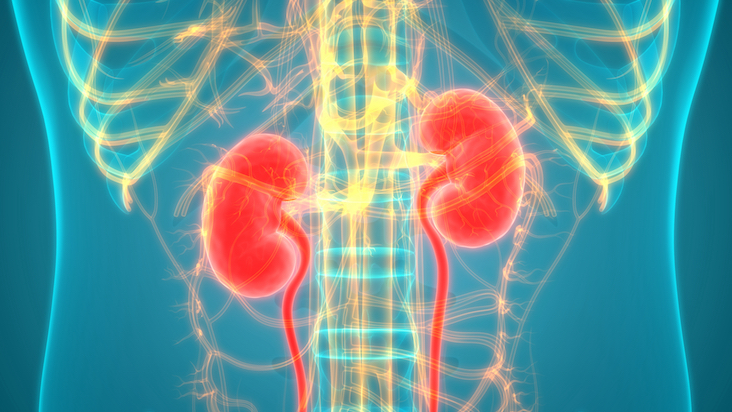
Anyone who lives with diabetes probably knows the hassle it can be to attain the needed medications and equipment to help manage your condition — not to mention the right amounts! Enter medical supply companies, created to streamline the process of obtaining medical supplies, especially for people living with chronic conditions like diabetes who need regular shipments.
But instead of streamlining, many customers complain that medial supply companies like Edgepark Medical actually bog down the process with unnecessary paperwork, shipping delays, and call center personnel that “doesn’t have a clue” about the critical diabetes supplies they’re distributing.
One former Edgepark exec agrees that it isn’t right or fair, and he’s now on a mission to make the interaction between people with diabetes (PWDs) and the companies that serve them “easy, fast, predictable, and secure.”
DiabetesMine connected with Former Edgepark VP Adam Graybill, who just launched the New Hampshire-based startup Journey Biosciences. The company makes an innovative new lab test determining risk of developing kidney disease for people with all types of diabetes. They’ve partnered with PreventAGE to produce a results report that is sent to both the patient and their doctor, that even suggests next steps for patient care.
In our interview, Graybill shares his experience working in the “complicated diabetes space,” and what exactly inspired him to move on from Edgepark to create this novel testing company that’s focused on elevating customer service.
What’s your relationship to the diabetes community?

I have spent the past 18 years serving the diabetes community in various ways from both a professional and personal involvement in various nonprofits that serve and support the community.
This includes work with my local chapter of JDRF and my time with Cardinal Health and Edgepark, where I built teams focused on delivering products and supplies to people living with diabetes.
I am extremely proud to say that I played a part in helping over 1 million PWDs in the U.S. with their insulin-delivery needs, BGM [traditional blood glucose monitors] and CGM [continuous glucose monitors].
How did you get so passionate about improving customer service in healthcare?
My parents raised my brothers and me that serving others was an expectation, and we should prioritize others needs and wants ahead of our own. This carried forward as I worked my way through university while working for the Boys & Girls Clubs of America, my involvement in various nonprofit and charitable organizations, and I absolutely love that I can make a living while trying to help others.
My wife, Megan, was also diagnosed with Multiple Sclerosis (MS) many years ago, so we are a very big customer of healthcare and we have experienced great care and various forms of less than great care.
Every experience makes me realize that more can — and should — be done to help every person. This is what motivates me each day and is a common trait of every member of the Journey team.
Lots of people are frustrated with the poor customer service at companies like Edgepark. What did you learn from your experience there?
I understand the frustration, from firsthand experience I know what it feels like to not have supplies and medication, and it is one of the few times you can be terrified and angry at the same time.
My teams and I tried very hard to meet the needs of our customers. I learned a lot from this time and as we build Journey Biosciences, my goal is to make the process as simple and straightforward for our customers — both PWDs and healthcare providers (HCPs). We are committed to building an organization that is focused on serving our customers.
My time with Edgepark and [pharma distributor] Cardinal Health was an opportunity for tremendous growth and to help and serve millions of people who are dealing with the 24/7 reality of diabetes, cancer, and other conditions. As mentioned, healthcare is extremely personal to me and the pursuit was always to make a very specific part of the healthcare supply chain less burdensome.
The greatest lesson I learned is that to have a greater impact on the diabetes community, I would need to move further upstream, focus on innovation and be narrowly focused on the real needs of PWDs.
I am truly lucky to have been introduced to Dr. Paul Beisswenger and the team at Journey Biosciences, where we have a relentless focus on innovation, and we are culturally oriented for action.
What do you hope to accomplish in your new venture?
Our mission says it all: “At Journey Biosciences, we are dedicated to fundamentally improving diabetes care. We provide health care professionals and people with diabetes the necessary diagnostic screening tools to proactively manage and prevent high risk complications associated with
There are few areas of healthcare that have benefited from innovation as much as diabetes. Over the past decade, we’ve seen firsthand how transitioning from reactive monitoring (BGM) to real-time and proactive monitoring (CGM) has helped PWDs make improvements in their diabetes management.
It is very clear that diabetes care has been on a journey from reactive to real-time, and with trending data a PWD can anticipate adjustments.
We want to play a significant role in bringing proactive care to diabetes, leveraging the predictive qualities of our proactive diagnostic screening. In addition, we are not going to stop at kidney disease, we have a pipeline into cardiovascular disease and genetics that may impact diabetes as well.
Can you explain Journey Biosciences’ new kidney disease detection test?
There are two components. The first is our new NaviDKD diagnostic screening, that analyzes predictive biomarkers in a person’s blood called Advanced Glycation End Products or AGEs, to determine an individual’s risk of kidney complications associated with diabetes.
The second piece is the Compass Report (Complications Propensity Assessment) that uses proprietary algorithms to create a person’s individual risk profile. The report also summarizes current standards of care from the American Diabetes Association (ADA), American Association of Clinical Endocrinologists (AACE), and the Association of Diabetes Care and Educations Specialists (ADCES).
This may sound simple and we are proud of that, but Dr. Beisswenger and the research teams have been working on this for a long time and have clinically validated the accuracy of the test in multiple publications and important studies including the landmark
How does this compare to existing ways to detect kidney complications associated with diabetes?
The three most common measures are the microalbumin, UACR (urine albumin-to-creatinine ratio) and eGFR (estimated glomerular filtration rate) tests, which are all very important, but they measure what has already happened, so they only detect kidney disease that is already occurring.
We are focused on keeping a PWD at Stage 0, so we recommend not waiting for those screenings to understand your future risk. Our NaviDKD test tells the story of what will happen rather than what has already happened. It’s simply a better measure that allows for proactive intervention.
You can compare this to the A1C test, which has been the gold standard of glucose control for years, but it is largely retrospective, while the introduction of CGMs is starting to shift the conversation to Time In Range (TIR), allowing people to make real-time adjustments.
What will the customer experience be like?
Our commitment is to make the process easy, fast, predictable, and secure. We have focused on making the science as simple as possible and meeting the customer where they are and how they want to communicate.
Our PWD customers will have a small 2 mL (purple cap vial) blood sample drawn at their lab. The sample will be sent to our lab for analysis, and we will create their digital Compass Report, which will be sent to them and their HCP.
Our experience will be entirely digital, so they will confirm details and make payment arrangements by either their phone, tablet, or desktop.
For the HCP, we will spend time upfront determining the best way to integrate with Electronic Medical Record (EMR) or set up an easy solution for placing orders. We want to be a resource available to them to make their days easier and allow them to provide tailored, individualized care to each patient based on their risk profile.
In case high risk is detected, what does your report typically suggest as next steps?
The most important step is to meet with their HCP to review the results and have a conversation about their path forward.
For example, if your results showed that you have a higher risk for developing diabetic kidney disease, you and your doctor may determine that your best path is to try using newer medications, such as SGLT2 inhibitors, which have demonstrated positive outcomes for kidney disease, or limiting hyperglycemia (overly high blood sugar) through the use of a CGM and following a nutrition plan which includes lower AGE foods.
We see strategic partnerships as an important step, so that SGLT2 inhibitors like Jardiance and CGMs like Dexcom G6 and Abbott’s FreeStyle Libre can be made available to the high-risk population, with no out-of-pocket costs.
By understanding risk factors prior to any signs or symptoms, a PWD can work with their HCP to leverage existing, proven treatments and technologies to help change their life.
How exactly does this new venture prioritize real-world patient needs?
We’ve listened to people who are living with diabetes and healthcare professionals alike and we’ve learned from our prior experiences and have applied these learnings to Journey Biosciences.
Specifically, we want every PWD to have the opportunity to “know their risks,” so access and affordability are areas that we have spent a lot of time understanding so that we can help the greatest number of people in the shortest amount of time.
Our reality in the United States is that many of us have high deductible insurance plans, with large out-of-pocket costs, and we don’t want PWDs to have to pay inflated list prices. So, we are offering our test at the lowest possible price right now, and are working relentlessly to find ways to make it accessible to more of the community.
As of Sept. 30, 2021, we are launching in the U.S. at a cost of $25/month ($300 annually) for the NaviDKD screening and Compass Report. The screening costs will be eligible for both Flexible Spending Accounts and Health Savings Accounts. We are also offering a “buy now, pay later” option, and we are working to develop other programs to help “pay it forward”.
This way, we are able to come to market faster, and we are able to continue to reinvest money into future innovation and research. Our goal is to have future screening tools to address other diabetes-related complications, which can also be assessed through AGE’s.
Anything else you’d like to share with the diabetes community?
As with any new product, our biggest challenge is to make people aware that this screening tool exists.
We would welcome the opportunity to work within the diabetes community to increase awareness so that people can know their risks and proactively change their life. If interested, you can contact Journey Biosciences here.
Thank you for your time and your commitment to innovation in diabetes care, Adam!
This content was originally published here.

